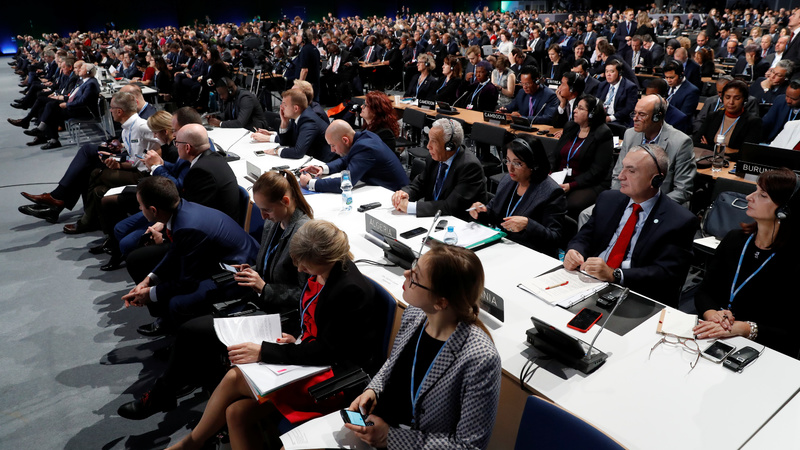
The World Bank announced on Monday that it will double its current five-year investments towards supporting climate change initiatives by $200-billion from 2021-2025.
This announcement comes as 200 countries assembled for the United Nations’ COP24, which began on Sunday in Poland.
The $200-billion will consist of approximately $100-billion in direct finance from the World Bank, and approximately $100-billion of combined direct finance from two World Bank Group members — the International Finance Corporation and the Multilateral Investment Guarantee Agency — and private capital mobilised by the group.
World Bank president Jim Yong Kim said this commitment by the bank over five years will show just how seriously they are taking the issue of climate change.
“We are pushing ourselves to do more and to go faster on climate and we call on the global community to do the same.
This is about putting countries and communities in charge of building a safer, more climate-resilient future,” Kim said.
World Bank senior director for climate change John Roome also emphasised the need for countries and entities to urgently address climate change and its effects.
“If we don’t reduce emissions and build adaptation now, we’ll have 100-million more people living in poverty by 2030. And we also know that the less we address this issue proactively just in three regions — Africa, South Asia and Latin America — we’ll have 133-million climate migrants,” he said.
A topic of discussion will be the plan to implement the 2015 Paris Agreement which aims to coordinate efforts by countries around the world to stop warming at 1.5°C.
According to a statement released by the World Bank, this new plan will “significantly boost support for adaptation and resilience” while also recognising how “mounting climate change impacts on lives and livelihoods, especially in the world’s poorest countries”.
Much of the pledge will go towards reducing greenhouse gas emissions through the development of renewable energy strategies. Other strategies will include increasing landscape management in up to 50 countries which will cover up to 120-million hectares of forests.
The World Bank’s plan is also to help 100 cities achieve low-carbon urban planning.
The financing will also go to programmes that include the supporting of “early warning systems and climate information services to better prepare 250-million people in 30 developing countries for climate risks” according to the statement.
(Source: The Nation Malawi, 13th December 2018)
